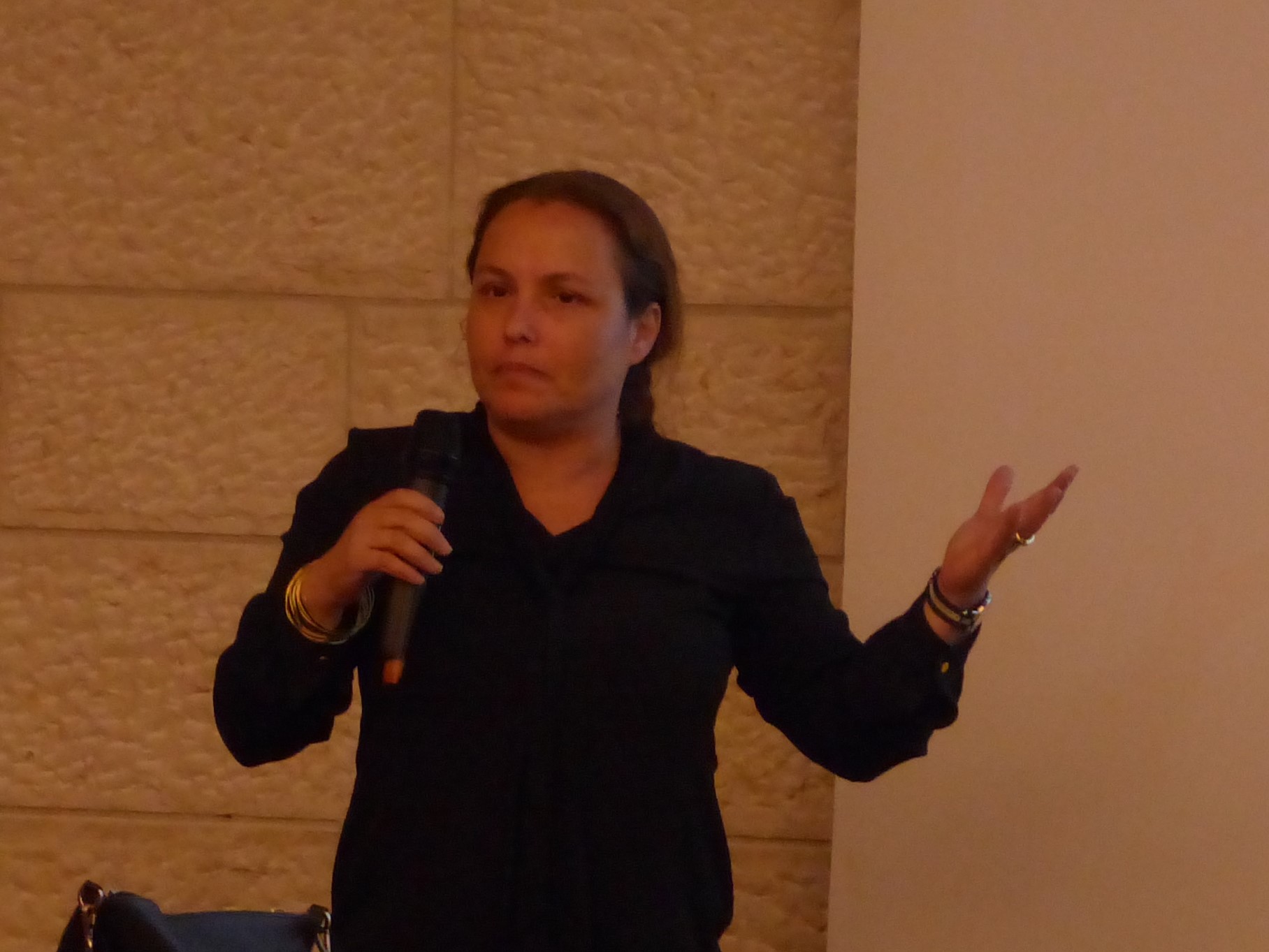Орли Саде
Орли Саде (англ. Orly Sade, ивр. אורלי שדה) — израильский финансовый экономист[1].
Биография[править]
Родилась в 1969 году.
Получила степень бакалавра искусств в области делового администрирования и экономики, а также степень магистра делового администрирования в Тель-Авивском университете. В 2001 году получила докторскую степень в области финансов в Школе бизнеса Университета Юты.
С 2013 года является адъюнкт-профессором финансов на финансовом факультете Школы делового администрирования Еврейского университета в Иерусалиме.
Известна своим исследованием с Дэном Маромом платформ краудфандинга.
С 2017 года является директором страховой компании «Клаль». В прошлом работала в Департаменте банковского надзора Банка Израиля и была членом консультативного совета Министерства финансов Израиля, а также совета директоров Управления по ценным бумагам Израиля.
Труды[править]
- Haran Rosen, M., & Sade, O. (2022) The Disparate Effect of Nudges on Minority Groups. The Review of Corporate Financial Studies (RCFS).
- Haran Rosen, M., & Sade, O. (2022) Investigating the Introduction of Fintech Advancement Aimed to Reduce Limited Attention Regarding Inactive Savings Accounts – Data, Survey and Field Experiment. forthcoming AEA Papers and Proceedings.
- Hurwitz, A., Mitchell, O. & Sade, O. (2021) Longevity Perceptions and Saving Decisions during the Covid-19 Outbreak: An Experimental Investigation. AEA Papers and Proceedings. 111, pages 297-301
- Gafni, H., Marom, D., Robb, A. & Sade, O. (2020) Gender Dynamics in Crowdfunding: (Kickstarter): Evidence on Entrepreneurs, Backers, and Taste-Based Discrimination. The Review of Finance.
- Mugerman, Y., Wnter, E. & Sade, O. (2020), Out-Of-Pocket vs. Out-Of-Investment in Financial Advisory Fees: Evidence from the Lab. Journal of Economic Psychology.
- Hurwitz, A., Sade, O. & Winter, E. (2020) Can Mandatory Minimum Annuity Laws Have Unintended Consequences? An Experimental Study. Journal of Economic Behavior & Organization, Volume 169, pp. 208–222.
- Hurwitz, A. & Sade, O. (2020) An Investigation of Time Preferences, Life Expectancy and Annuity versus Lump-Sum Choices – Can Smoking Harm Long-Term Saving Decisions? Journal of Economic Behavior & Organization, volume 180, pages 812-825.
- Gafni, Marom & Sade. (2018) Are the Life and Death of an Early Stage Venture Indeed in the Power of the Tongue? Lessons from Online Crowdfunding Pitches. Strategic Entrepreneurship Journal (SEJ), 2018, pp. 1-21.
- Mugerman, Sade, & Shayo. (2014). Long term saving decisions: financial reform, peer effects and ethnicity. Journal of Economic Behavior & Organization, 106, 235-253
- Camargo, Schnitzlein, Zender, & Sade. (2012). Divisible good auctions with asymmetric information: an experimental examination. Journal of financial and quantitative analysis, 48(4), 1271-1300
- Camargo, Schnitzlein, Zender, & Sade. (2013). On the persistence of overconfidence: evidence from multi- unit auctions. journal of behavioral finance.
- Brenner, Galai & Sade. (2009). Sovereign debt auctions: uniform or discriminatory? Journal of monetary economics, 56(2), 267-274.
- Galili & Sade. (2006). "The ostrich effect" and the relationship between the liquidity and the yields of financial assets. The journal of business, 79(5).
- Schnitzlein, Zender & Sade. (2006). When less (potential demand) is more (revenue): asymmetric bidding capacities in feasible good auctions. The review of finance (ROF), 10(3), 389-416.
- Schnitzlein, Zender & Sade. (2006). Competition and cooperation in feasible good auctions: an experimental examination. The review of financial studies (RFS), 19(1), 195-235.
- Kalay, Wohl & Sade. (2004). measuring stock illiquidity: an investigation of the demand and supply schedule at the TASE. The journal of financial economics, 74(3), 461-486.
- Crowley & Sade. (2004). Does the option to cancel an order in a double auction market matter? The economics letters, 83(1), 89-97.
- Brenner, Galili & Sade. (2010). A Note on Sovereign Debt Auctions: Uniform or discriminatory? In R. W. Kolb, J. Wiley & Sons, Inc., Sovereign Debt: From Safety to Default (119-127). New Jersey: John Wiley & Sons, Inc.
- Brenner, M., Galai, D. & Sade, O. (2016) Uniform or Discriminatory Auctions: Endogenizing Bidder’s Choice in Divisible Good Auctions In Behavioral Finance: Where do Investors Biases Come From"? edited by Itzhak Venezia.
- Zur, E. & Sade, O. (2011). Baseball and the art of fair value: Do managers or the prediction markets make better predictions? In I. Venezia & Z. Wiener., Bridging the GAAP: Recent advanced in finance and accounting (63-93). Singapore: World Scientific Publishing Co. Pte. Ltd.
